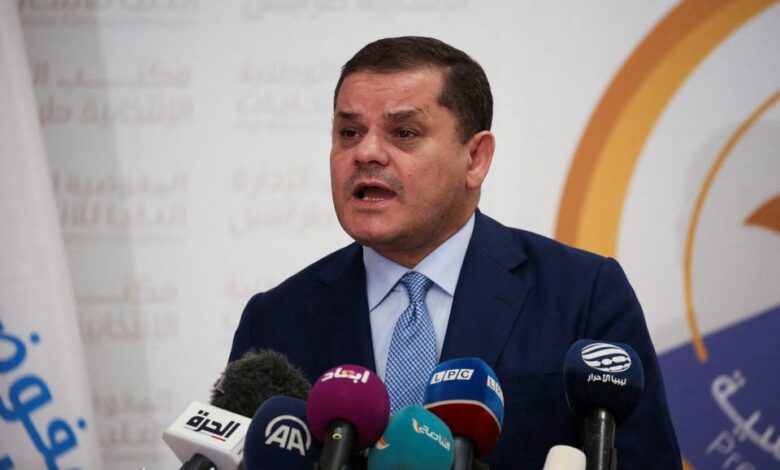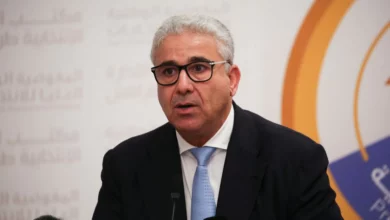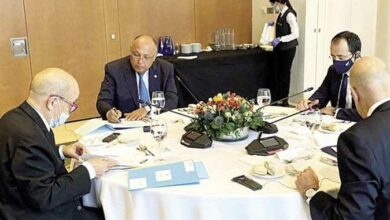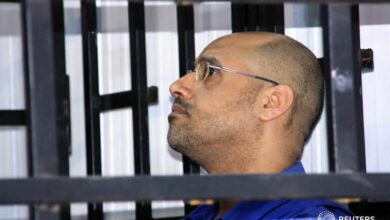
BENGHAZI, Libya, Jan 24 (Reuters) – A Libyan parliament committee said on Monday the chamber should choose a new interim prime minister, a move that could set major factions against each other in the wake of a failed election.
The committee, set up to chart a political path forward after a national election process collapsed last month, also said any fresh vote would take at least nine months to prepare.
A push by the eastern-based parliament to replace Abdulhamid al-Dbeibah, who was installed through a U.N.-backed peace process, would probably be rejected by other political institutions and some armed factions.
Dbeibah’s interim government was installed a year ago to replace two warring parallel administrations that ruled in east and west, a situation that some Libyans fear could recur.
Mobilization by armed forces around the capital Tripoli, in Libya’s northwest, in the weeks since the election has meanwhile raised concern that any dispute over the government could trigger clashes inside the city.
The U.N.-backed peace plan called for both parliamentary and presidential elections on Dec. 24, but preparations for the vote fell apart over disagreements about fundamental rules including the eligibility of some main candidates.
Libya has enjoyed little peace since the 2011 NATO-backed uprising against Muammar Gaddafi, and it split after a 2014 election between warring eastern and western factions, a conflict the elections were meant to help resolve.
After the election process unravelled the parliament set up a political roadmap committee to look at what to do next.
Parliament speaker Aguila Saleh, who was a presidential candidate, told the chamber on Monday that the term of Dbeibah’s government had expired with the election date.
Dbeibah was also running for president and his candidacy, while still serving as prime minister, was also seen by rivals as unfair.
The committee presented its report to parliament on Monday, saying it would take at least nine months to prepare for a new election to avoid fraud and ensure security.
It also proposed a vote in parliament on Tuesday to select a new prime minister.
U.N. Libya adviser Stephanie Williams, who has held talks with all the major players in Libya over recent weeks, said on Twitter on Sunday after meeting parliament speaker Saleh that the focus should be on new elections.
The parliament was elected in 2014 and mostly sided with the east during Libya’s civil war. It is one of several rival political bodies that are recognized internationally, but whose legitimacy is seen to have faded during the eight years since the last election.




